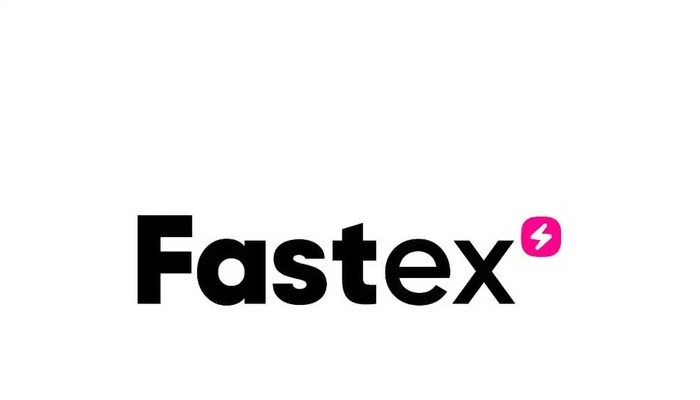
The End of Crypto, Again
The End of Crypto, Again
The news on successive days last week that the US Securities and Exchange Commission (SEC) had filed broad lawsuits against the largest and second-largest remaining cryptocurrency exchanges, Binance and Coinbase, respectively, was met with three distinct reactions from the financial world.
As would be expected, there were those who cheered the SEC moves as solid steps to finally ridding the world of the costly annoyance of electric fairy tokens and their underlying dead-end technology. There were an equal number of people who just as predictably either decried the SEC suits as a gross injustice, or bravely characterized the latest cases as a sort of “purifying fire” (the phrase used by one crypto fangirl in a podcast I listened to over the weekend) that will inspire true believers to work even harder to make their dream of “decentralized currency” a reality.
The most prevalent response to the news of the SEC action, however, even among some pettifogging financial pundits who ordinarily devote a great deal of time and attention to the details of the crypto market, was ambivalence. Contrary to what the shrinking population of crypto evangelists believe, interest in the crypto market and even its underlying technology has been rapidly evaporating over the past couple of years.
A string of embarrassing events certainly has not helped instill confidence in anyone who has been on the fence about crypto. But as Patrick Boyle, a hedge fund manager and finance professor at King’s College in London, pointed out in a post to his YouTube channel a few days ago, the problem may be that crypto has simply reached its limit and has become what its adherents probably fear the most: a niche, with the same economic importance as something like stamp collecting. Cryptocurrency was pitched as being as revolutionary as the internet, Boyle said, but whereas the internet began to profoundly change society within months of its widespread introduction, cryptocurrency is the same thing it was, and has had a corresponding impact on the greater world, as when it was first introduced about 13 years ago.
Coincidental cases
Despite the timing of the announcement of the Binance and Coinbase cases on June 5 and 6, the two cases are not related by anything other than perhaps SEC Chairman Gary Gensler’s open distaste for cryptocurrency, although some of the charges are similar. There has been a great deal of coverage in the business pages about the two cases, so I will not go into excruciating detail here, but to summarize, the Binance complaint deals more with fraud and criminal activity, and therefore seems to be more straightforward, while the Coinbase complaint is largely for violations of securities regulations without allegations of open fraud. As a result, the Coinbase matter is somewhat more complicated, and more interesting because it may actually lead to the long-awaited clarity on what exactly cryptocurrency is and who is responsible for regulating it.
Just as a point of clarification, the reason the SEC cases are federal lawsuits rather than criminal complaints is that is the limit of SEC’s authority. It does not have police or prosecutory powers, and so is limited to taking civil action in the case of alleged securities violations. It can, however, forward its complaints to the Department of Justice (DoJ) if it discovers criminal activity has taken place, but it is up to the DoJ to follow up on it.
The Binance complaint targets both the company, and its founder and chief executive officer Changpeng Zhao, and contains 13 charges. Among these are operating an unregistered exchange in the United States and actively evading regulations in order to do so after being previously banned from operating a US exchange by the SEC; wash trading by two firms, called Sigma Chain and Merit Peak, controlled by Zhao in order to artificially boost trading volumes in the exchange; failing to prevent US customers, who are prohibited from doing business with Binance, from accessing the exchange; commingling customer deposits with company funds in the two aforementioned firms as well as at least five outside bank accounts controlled by Zhao or other Binance officers; and misleading customers about the exchange’s market surveillance and security provisions.
There is no allegation of lost or stolen customer funds in the Binance complaint as filed on June 5, but it is widely believed that it is just a matter of time before that accusation is raised. The SEC lawsuit alleges that Sigma Chain spent $11 million to purchase a yacht, using one of the accounts where customer funds had been illegally deposited. Thus, there is at the moment a seemingly strong chance that Binance, Zhao and some of his colleagues may yet find themselves following in the footsteps of disgraced FTX founder Sam Bankman-Fried, whose trial on an arm’s-length list of criminal charges related to the $16-billion collapse of his exchange is expected to begin in September or October.
Besides the new SEC suit, Binance is already in hot water with another US regulator, the Commodities Futures and Exchange Commission, which filed a somewhat similar complaint about unlicensed activity against Binance in March.
In the Coinbase complaint, the SEC alleged that the crypto exchange in the US was operating in violation of the law by avoiding disclosure obligations, primarily by allowing customers to trade in at least 13 digital assets that should have been registered as securities, including the tokens Solana, Cardano and Polygon. The suit also accuses Coinbase of providing services as an exchange, broker and clearing agency, functions that must be separated by law and failing to register any of these with the SEC.
The Coinbase case is not as simple as the Binance case because Coinbase has a counterargument that, while not necessarily very clear or strong, will need to be dissected and resolved one way or another if all the parties concerned want these sorts of cases to not be constantly brought to court (the SEC has filed more than 100 of them in the past 10 years). While registering cryptocurrencies as securities and the various functions of exchange, broker or clearinghouse are required by law, the law has not clearly defined those well enough to allow the SEC to actually do its part to register them. Coinbase also argues that cryptocurrencies are not securities and therefore not under the jurisdiction of the SEC, although a number of financial and legal experts have said that under current US law, which dates back to 1934, cryptocurrencies are closer to being securities than commodities, and so this is an argument Coinbase will likely lose.
Moot point
There is a sense that even if Coinbase comes out on top in its defense against the SEC complaint — which is at best only partly likely, as the charge of simultaneously doing exchange, broker and clearing functions is pretty solid — it will be a hollow victory because crypto has already rendered itself largely irrelevant to the economic mainstream. For every supposed “good guy” in the crypto space, ones like Coinbase who apparently mean well, there’s an FTX or a Binance engaged in what everyone assumes is the real purpose of cryptocurrency — fraud, money laundering, tax evasion and black marketeering.
In just the past six months, one major exchange (FTX) collapsed, wiping out billions in investor funds, two banks established for cryptocurrency business (Silvergate Bank and Signature Bank) failed and the current world’s biggest exchange has virtually shut down (Binance announced it will suspend US dollar deposits and withdrawals as early as today) after charges that hint of possible FTX-style fraud. Any credibility crypto has or may acquire as an outcome of the Coinbase case will be moot for the wider population because of the obvious inherent risk. That is already apparent, and will likely be an even stronger perception as the Binance case proceeds.
The end of crypto has been predicted many times, and the latest cases unfortunately probably will not be enough to make the prediction stick this time. But they do seem likely to result in the next best thing, a weird subculture whose risks are effectively avoided by simply ignoring it.
Other Interesting:
Death toll in Vietnam shootings climbs to nine
See other website:
Oriental Game
Article Source
https://www.manilatimes.net/2023/06/13/opinion/columns/the-end-of-crypto-again/1895799
Other Interesting Articles
 Death toll in Vietnam shootings climbs to nine
Death toll in Vietnam shootings climbs to nineJun 13, 2023











